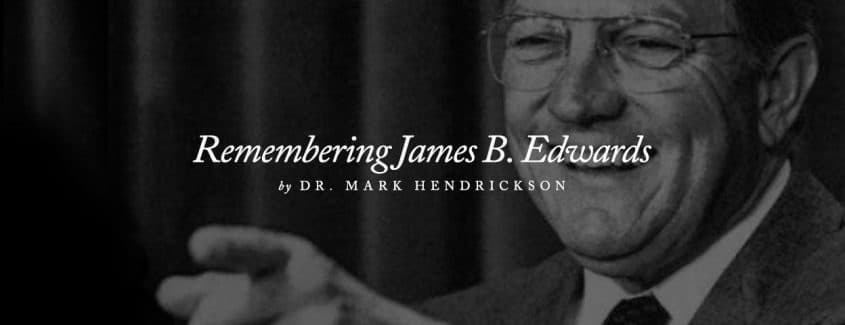
Editor’s note: This article first appeared at The American Spectator.
On the morning after Christmas, James B. Edwards passed away. Few Americans under the age of 40—unless they are South Carolinians—had probably never heard of Jim.
Here’s the official biography: James B. Edwards was President Reagan’s original Secretary of Energy. At the age of 17, in 1944, Jim joined the U.S. Maritime Service to serve his country during World War II. Several years later, while still a Navy Reserve officer, he became an oral surgeon.
In the mid-60s, concerned about the direction of our country, he got involved in politics, first behind the scenes, then serving a term in the South Carolina State Senate. He surprised the experts in 1974 by becoming the first Republican governor of South Carolina since Reconstruction.
Limited to one four-year term by the state constitution, Jim worked to promote the presidential candidacy of Ronald Reagan. After Reagan’s election in 1980, he tapped the oral surgeon from South Carolina to be his Secretary of Energy with the mission of shutting down the Department of Energy.
It was at this time that I met Jim Edwards. In March of 1981, just a week or two before President Reagan was almost killed by a would-be assassin, my mentor, the late Hans Sennholz, took me to a monetary conference at the opulent Averell Harriman estate overlooking the Hudson River. Hans was one of the featured speakers, and the list of attendees was impressive—congressmen, famous economists and journalists, ambassadors, etc.
The big surprise for me, though, was when I went to my room to get something and found two men in suits, one going through my suitcase and the other immediately showing me his ID as a federal agent and requesting my driver’s license. The security check was mandatory because I would be sharing a room with the United States Secretary of Energy, James Edwards.
A little while later, I met my roommate. He instantly put me at ease and insisted that I call him “Jim.” I was instantly impressed—not because he was flashy, witty, or charismatic, but simply because he was so gracious, kind, and genuine. He had that special ability to make you feel that you had his undivided attention and that he sincerely wanted to hear what you had to say. I was so grateful that we had such a good man serving in an important position.
A few months later, Jim and I exchanged letters. I wish there had been some way I could have gone to work for him, but I wasn’t through with my degree work yet. The time wasn’t right.
The following year, Jim left Washington. Having joined the Reagan administration for the purpose of dismantling the Department of Energy, it had become clear that Speaker Tip O’Neill and his Democratic majority were not going to let that happen. (Jim at least was able to trim the DoE payroll by over 2000.) Having gone as far as he could in his mission, Jim returned to private life to head the Medical University of South Carolina—a job he filled with distinction for the next 17 years, until he retired.
It’s too bad that Ronald Reagan and Jim Edwards weren’t able to pull the plug on the DoE. Like all government bureaucracies, it grew, entrenched itself more deeply in our body politic, and provided yet another example of bureaucratic “mission creep.” Besides having become a sugar daddy for all sorts of wasteful green boondoggles, would you believe that the DoE houses the Human Genome Project?
Sounding absolutely Reaganesque in retirement, Jim assessed his leadership ability with characteristic humility: “God has blessed me with the ability to pick good people,” he said. “I choose good people and then I’m smart enough to stay out of the way and let them do their jobs well.”
As we remember James B. Edwards with gratitude, admiration, and appreciation, we should feel optimistic. America still produces good people like Jim willing to render selfless service to their country. RIP

